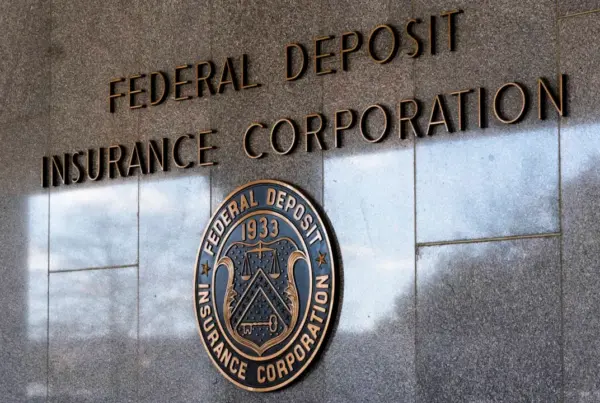FDIC’s Proposed Rules on Brokered Deposits: Essential Insights for Financial Institutions
Introduction
On October 11, 2023, the Federal Deposit Insurance Corporation (FDIC) proposed significant regulatory changes regarding brokered deposits. This proposal is pivotal as it aims to enhance the stability of the banking system and protect depositors. The proposed rules are particularly relevant in light of recent financial instabilities that have raised concerns about the risks associated with brokered deposits.
Historically, the regulation of brokered deposits has evolved through various amendments and enforcement actions, underscoring the need for clearer guidelines. The primary concern addressed by this regulatory action is the potential risk to the Deposit Insurance Fund (DIF) posed by the increasing reliance on brokered deposits, especially during periods of economic uncertainty.
Key Regulatory Changes & Analysis
1. Expansion of the Definition of Deposit Broker
The proposed rule significantly broadens the definition of a deposit broker under Section 29 of the Federal Deposit Insurance Act.
- Previous Definition: The existing definition primarily targeted entities that facilitate the placement of deposits.
- New Definition: The proposed changes expand this definition to include a wider range of entities involved in deposit placement activities, thereby capturing more financial intermediaries.
This expansion is critical as it increases the number of entities subject to regulatory oversight and compliance obligations.
2. Enhanced Reporting Requirements
The FDIC’s proposal introduces new reporting obligations for institutions that accept brokered deposits.
- Key Changes:
- Financial institutions must report the total amount of brokered deposits on a quarterly basis.
- Enhanced disclosures regarding the nature of the deposits and the identity of the brokers involved are now mandated.
These measures aim to improve transparency and enable the FDIC to monitor risks associated with brokered deposits more effectively.
3. Impact on Financial Institutions
The proposed regulations will have significant implications for various stakeholders in the financial sector, including:
- Banks: Increased compliance costs and operational adjustments will be necessary to align with the new definitions and reporting requirements.
- Fintech Companies: Many fintech firms that facilitate deposit placements may now be classified as deposit brokers, subjecting them to new regulatory obligations.
- Consumers: The changes could influence the availability and terms of deposit products offered, potentially affecting consumer access to banking services.
Legal and Industry Implications
The proposed regulatory changes present several compliance challenges and potential legal risks for affected institutions:
- Compliance Burdens: Financial institutions may incur additional operational costs to implement new reporting systems and ensure compliance with the expanded definitions.
- Legal Challenges: The broadened definition of deposit brokers may lead to litigation as institutions seek clarity on their regulatory obligations.
- Regulatory Risks: Non-compliance with the new rules could result in enforcement actions, fines, or restrictions on deposit-taking activities.
To mitigate these risks, law firms and financial institutions should proactively assess their current practices and prepare for potential regulatory scrutiny.
Recommended Actions & Compliance Strategies
Affected parties should consider the following actions to ensure compliance with the proposed regulations:
- Review Internal Policies: Conduct a comprehensive review of current deposit placement practices to identify any entities that may now be classified as deposit brokers.
- Enhance Reporting Mechanisms: Develop or update reporting systems to comply with the new quarterly reporting requirements.
- Engage in Public Comment: Stakeholders are encouraged to participate in the public comment period to voice concerns or suggestions regarding the proposed rules, influencing the final regulatory framework.
Key Deadlines
- Public Comment Period: The deadline for public comments is yet to be announced.
- Implementation Timeline: Institutions should prepare for compliance by a date to be determined following the conclusion of the public comment period.
Conclusion & Next Steps
The FDIC’s proposed rules on brokered deposits signify a substantial shift in regulatory oversight, with implications for a wide range of financial institutions. Stakeholders should prioritize compliance readiness and actively engage in the public comment process to shape the final rule.
As the regulatory landscape continues to evolve, institutions must remain vigilant and adaptable to potential changes. Monitoring further developments from the FDIC and preparing for the implementation of these new requirements will be essential for maintaining compliance and operational integrity in the near future.


